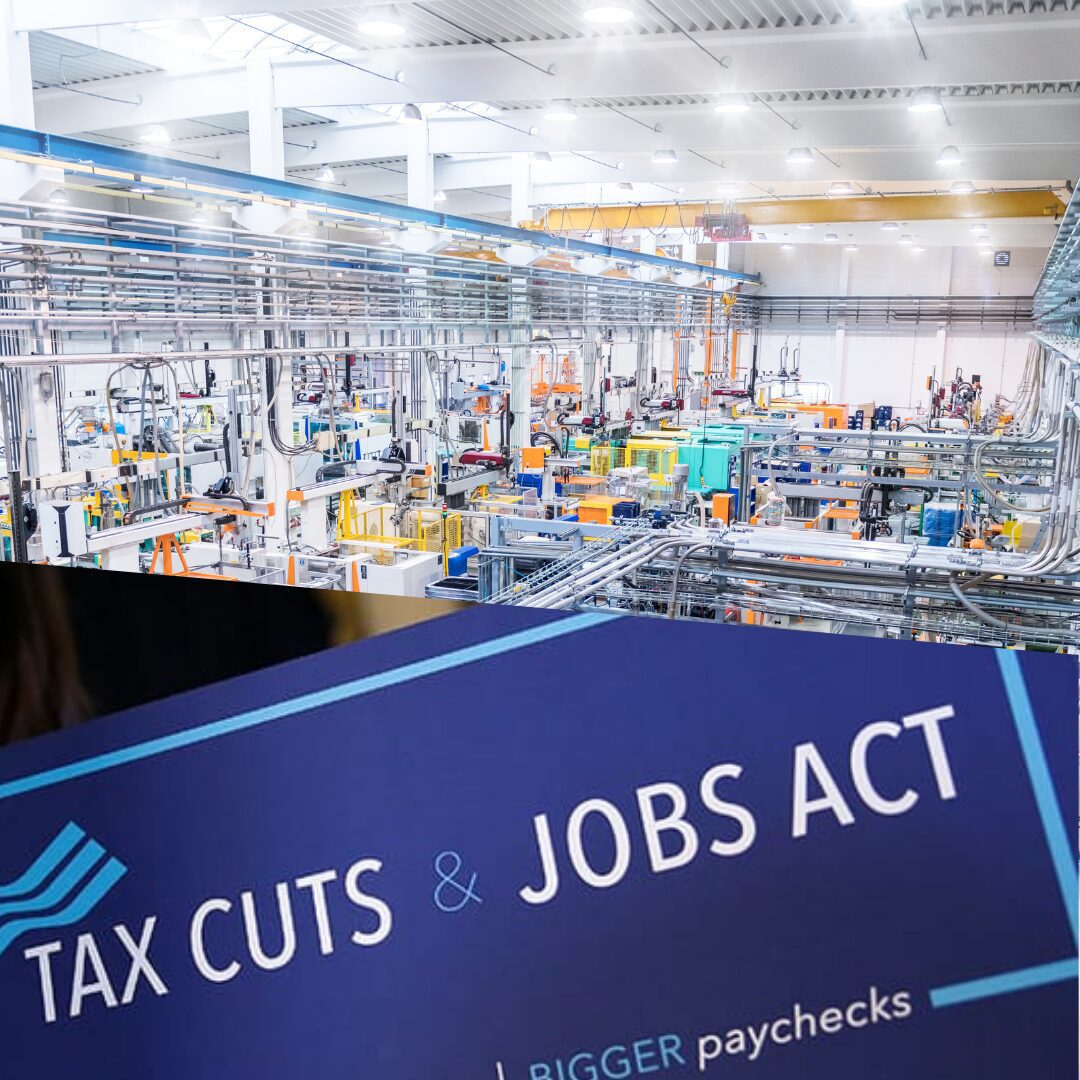
Extending Tax Cut Provisions is Key for Manufacturers
Taxpayers Protection Alliance
February 27, 2025
Legislators will soon determine what path to take on tax reform. They should pay special attention to the negative economic impacts of a failure to extend key provisions within the Tax Cuts and Jobs Act (TCJA). The manufacturing industry directly depends on specific provisions like the business pass through deduction and the lower individual and corporate tax rates. Congress needs to act now to permanently extend the TCJA to benefit manufacturers, key players in the economy, who provide millions of jobs and support innovation.
Courtney Silver, the president of Ketchie, Inc. a small third generation precision shop in Concord, North Carolina that creates complex parts for larger manufacturers, recently testified before the Ways and Means Committee about how the TCJA has benefited her company. Silver noted that since its enactment of TCJA in 2017, Ketchie invested nearly $1 million into new equipment, grew their workforce by 20 percent, and experienced wage growth for the first time in 15 years. Failing to extend these provisions could result in a significant increase in tax liability for American businesses like Ketchie, Inc.
According to a recent study, a failure to extend the TCJA could put 1.1 million jobs, $126 billion of U.S. employee compensation, and $284 billion of U.S. GDP at risk in multiple industries. Within the manufacturing industry, the benefits of the TCJA center around deductions like the pass through deduction. A staggering 96 percent of businesses in America are designated as pass-throughs. This deduction allows businesses to deduct up to 20 percent of their qualified business income, reducing their total taxable income. A majority of manufacturers have noted that the loss of this deduction will harm their ability to grow and innovate.
In addition to the pass-through business deduction, lowered marginal tax rates for individual filers need to be extended. The TCJA lowered marginal tax rates for all taxpayers, which is a key driver of economic growth. If these rates were to be reversed to pre-TCJA levels, taxpayers would have increased tax burdens, affecting consumer participation in the economy.
TCJA also doubled the estate tax exemption threshold, which is beneficial to small businesses and families. In particular, family-owned farms and manufacturers (like Ketchie Inc.), would benefit significantly. This exemption made it significantly easier for businesses to be passed down or sold, without having to liquidate assets to cover the cost of the tax. Family businesses being passed down should not have to worry about having to sell off non-liquid assets or face bankruptcy. This provision is essential for Congress to extend to benefit taxpayers.
TCJA included additional business-friendly provisions that are already expiring or expired. Full expensing and interest deductibility are two provisions important for manufacturers. “Full expensing” allows manufacturers to lower the upfront costs of investments, such as equipment.
Under the TCJA, full expensing was initially phased out in 2023, with a complete expiration scheduled for 2027. Accelerated depreciation of full expensing has been vital for manufacturers to continue to invest and expand. Interest deductibility disallowed the deductibility of net interest expense exceeding 30 percent of earnings before interest, taxes, depreciation, and amortization. In 2022, a stricter limitation on this deduction was enacted. Manufacturers, who often have significant depreciable assets, need flexibility with interest deductibility to avoid double taxation. Both provisions should be extended by Congress.
Manufacturers Create Jobs
In large states like Texas and California, the expiration of these provisions could result in over 500,000 jobs lost and more than $50 billion in employee compensation effected. Beyond just the largest states, every area of the country stands to be negatively impacted by the expiration of various TCJA provisions. Manufacturers specifically rely on the ability to fully expense costs, deduct interest on assets, and the ability to deduct business profits as income.
Extending these key tax code provisions and revising elements that have already expired or have shifted after 2017 is a prime opportunity for lawmakers. This year, Congress can continue to protect businesses and individuals. The manufacturing industry is just one example that proves how essential a simplified tax code focused on growth can benefit the American economy by creating job opportunities and wage growth. Congress should act now to protect the TCJA and America’s manufacturing strength with it.
Faith Jablokow is a tax policy research associate at Taxpayers Protection Alliance.
This op-ed was originally published in American Spectator.
